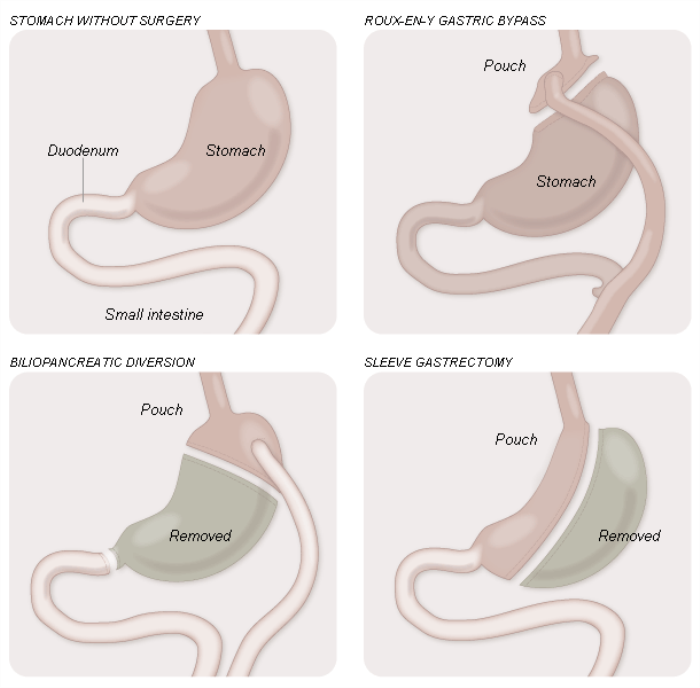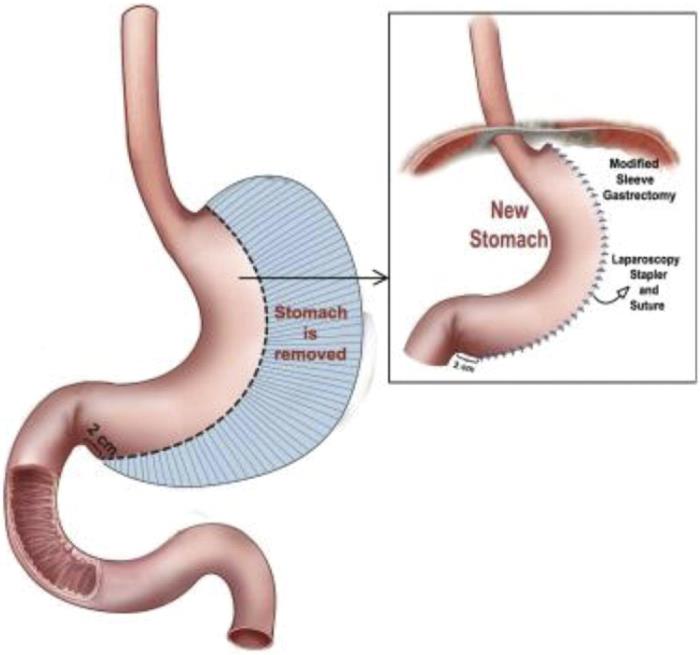Sleeve gastrectomy has emerged as a promising treatment for managing type 2 diabetes, particularly in individuals with obesity. By promoting weight loss and altering hormonal responses, the surgery helps regulate blood sugar levels, leading to improved diabetes management. Many patients experience reduced reliance on diabetes medications, with some even achieving remission of the disease post-surgery.
How Does Sleeve Gastrectomy Help Manage Diabetes?
Sleeve gastrectomy aids in diabetes management primarily by reducing body weight, which directly impacts blood sugar control. The surgery also alters gut hormones that affect insulin sensitivity, improving the body’s ability to regulate glucose levels more effectively. These combined effects help patients maintain better control over their diabetes in the long term.

The Link Between Obesity and Type 2 Diabetes
Obesity is a leading risk factor for the development of type 2 diabetes. Excess body fat, particularly around the abdomen, contributes to insulin resistance, making it difficult for the body to use insulin properly, leading to elevated blood sugar levels. By addressing obesity through sleeve gastrectomy, patients often see improvements in diabetes symptoms and overall health.
What Happens to Blood Sugar Levels After Sleeve Gastrectomy?
After sleeve gastrectomy, blood sugar levels often improve dramatically due to weight loss and hormonal changes that enhance insulin sensitivity. Many patients experience a significant drop in fasting blood glucose and HbA1c levels within a few weeks of surgery. This improvement is often long-lasting, provided the patient maintains a healthy lifestyle post-surgery.
Can Sleeve Gastrectomy Lead to Diabetes Remission?
Yes, sleeve gastrectomy can lead to remission of type 2 diabetes in some patients. Remission occurs when blood sugar levels return to normal without the need for diabetes medications. While not guaranteed, many individuals experience remission, particularly if they achieve significant weight loss and follow a healthy lifestyle.
Role of Hormonal Changes in Managing Diabetes Post-Surgery
Sleeve gastrectomy alters gut hormones such as ghrelin, which influences hunger and insulin sensitivity. These hormonal changes play a crucial role in improving blood sugar regulation, enhancing the body’s response to insulin, and reducing appetite. This hormonal shift is a key factor in the surgery’s effectiveness in managing diabetes.
Impact of Sleeve Gastrectomy on Insulin Sensitivity
The weight loss and hormonal changes following sleeve gastrectomy improve insulin sensitivity, allowing the body to better manage blood sugar levels. Enhanced insulin sensitivity means that cells respond more effectively to insulin, reducing the likelihood of elevated glucose levels. This improvement often leads to a decreased need for diabetes medications.
Reducing Dependence on Medications After Sleeve Gastrectomy
Many patients can reduce or even eliminate their dependence on diabetes medications after sleeve gastrectomy. As blood sugar levels stabilize and insulin sensitivity improves, the need for insulin injections or oral medications diminishes, allowing patients to better manage their condition naturally. This reduction in medication use is one of the significant benefits of the surgery for diabetes patients.
How Long Does Diabetes Improvement Last After Surgery?
Diabetes improvement after sleeve gastrectomy can last for years, especially if patients maintain a healthy weight and lifestyle. While some individuals may eventually need medications again, many continue to enjoy better blood sugar control and reduced reliance on diabetes treatments for an extended period. Long-term success largely depends on the patient's commitment to dietary and lifestyle changes.
Sleeve Gastrectomy vs. Other Bariatric Surgeries for Diabetes Control
Compared to other bariatric surgeries, sleeve gastrectomy is highly effective in managing diabetes, though gastric bypass may result in faster remission for some. However, sleeve gastrectomy is often preferred due to its lower complication rates and similar long-term diabetes control outcomes. Both procedures offer significant benefits, and the choice depends on individual health factors and preferences.
Dietary Guidelines for Diabetes Patients After Sleeve Gastrectomy
After sleeve gastrectomy, diabetes patients should follow a high-protein, low-carbohydrate diet to maintain blood sugar levels and support weight loss. It's essential to eat small, frequent meals and avoid sugary foods that can cause blood sugar spikes.
Does Sleeve Gastrectomy Work for Type 1 Diabetes?
Sleeve gastrectomy is primarily designed for the treatment of obesity and type 2 diabetes, and its effectiveness for type 1 diabetes is less clear. While some studies suggest that weight loss from the surgery may improve insulin sensitivity and overall metabolic health in type 1 diabetes patients, it is not considered a standard treatment for this condition. Type 1 diabetes involves autoimmune destruction of insulin-producing cells, which sleeve gastrectomy does not address directly. Therefore, it is crucial for patients with type 1 diabetes to consult their healthcare team to evaluate potential risks and benefits.

How Can Sleeve Gastrectomy Prevent Diabetes-Related Complications?
Sleeve gastrectomy can play a vital role in preventing diabetes-related complications by promoting significant weight loss and improving blood sugar control. With better management of diabetes, patients often experience reduced risks of cardiovascular diseases, neuropathy, and other complications associated with prolonged high blood sugar levels. Early intervention through surgery can thus enhance overall health and quality of life for individuals with obesity-related diabetes.
What Is Long-Term Diabetes Management Like After Sleeve Gastrectomy?
Long-term diabetes management after sleeve gastrectomy often shows positive outcomes, with many patients achieving sustained weight loss and improved blood sugar levels. Regular follow-up appointments are essential to monitor metabolic health, adjust medications, and provide dietary counseling. Continued commitment to a healthy lifestyle is critical for maintaining the benefits of surgery and preventing the return of diabetes symptoms.
What Role Does Exercise Play in Controlling Diabetes After Surgery?
Exercise is crucial for controlling diabetes after sleeve gastrectomy. Regular physical activity helps enhance insulin sensitivity, supports weight loss, and improves overall cardiovascular health. Patients are encouraged to incorporate a mix of aerobic exercises and strength training into their routine. Consistent exercise not only aids in managing blood sugar levels but also contributes to better mental health and well-being.
How Does Sleeve Gastrectomy Affect Mental Health and Diabetes?
Sleeve gastrectomy can positively impact mental health by alleviating some psychological burdens associated with obesity and diabetes. Many patients report improved self-esteem and reduced anxiety related to their body image and health status after surgery. Addressing mental health is essential, as psychological well-being plays a significant role in effective diabetes management and adherence to lifestyle changes.
Can Sleeve Gastrectomy Prevent the Onset of Diabetes?
Sleeve gastrectomy can be effective in preventing the onset of type 2 diabetes, especially in individuals with obesity or pre-diabetes. By facilitating substantial weight loss and improving insulin sensitivity, the surgery helps reduce the risk factors associated with developing diabetes. Patients who maintain a healthy lifestyle post-surgery are more likely to avoid the progression to full-blown diabetes.
What Is the Relationship Between Insulin Resistance and Weight Loss Surgery?
Insulin resistance is a condition where the body’s cells do not respond effectively to insulin, leading to elevated blood sugar levels. Weight loss surgery, including sleeve gastrectomy, can significantly improve insulin sensitivity through weight reduction and hormonal changes. Understanding this relationship is crucial for patients as they navigate their post-surgery health journey.
What Are the Benefits of Sleeve Gastrectomy for Pre-Diabetic Patients?
Sleeve gastrectomy offers several benefits for pre-diabetic patients, including significant weight loss and improved metabolic health. Many individuals experience a reversal of pre-diabetes symptoms after surgery, leading to better blood sugar regulation and a decreased risk of developing type 2 diabetes. Early intervention through weight loss surgery can set the foundation for a healthier future.
What Should Patients Expect During Diabetes Management Post-Surgery?
During diabetes management post-surgery, patients can expect regular monitoring of blood sugar levels and ongoing dietary guidance. Many will also participate in follow-up appointments to track their weight loss progress and make necessary adjustments to their diabetes management plans. Support groups and educational resources can also provide valuable information and encouragement during this transition period.
Is Sleeve Gastrectomy a Cure for Diabetes?
While sleeve gastrectomy can lead to significant improvements in blood sugar control and, in some cases, remission of type 2 diabetes, it is not considered a definitive cure. Management of diabetes will still be necessary, focusing on a healthy lifestyle, regular monitoring, and, if needed, medication. Patients are encouraged to adopt long-term habits that support their health and well-being post-surgery.
Best Sleeve Gastrectomy Treatment in India
The Best Sleeve Gastrectomy Treatment in India is performed by expert surgeons who utilize advanced techniques to ensure optimal outcomes for patients, offering a personalized treatment plan tailored to individual health needs.
Best Sleeve Gastrectomy Hospitals in India
The Best Sleeve Gastrectomy Hospitals in India are equipped with cutting-edge technology and facilities, providing top-notch care, including pre-surgery consultations, surgical expertise, and post-operative recovery support to ensure a smooth patient journey.
Sleeve Gastrectomy Cost in India
When considering the Sleeve Gastrectomy Cost in India, patients benefit from affordable and transparent pricing at leading hospitals, which offer cost-effective treatment options without compromising the quality of care.
Best Sleeve Gastrectomy Doctors in India
The Best Sleeve Gastrectomy Doctors in India are highly experienced in performing the surgery, utilizing a patient-centric approach that ensures personalized care, precise surgical techniques, and dedicated follow-up care to enhance recovery.
FAQ on Understanding Impact of Sleeve Gastrectomy on Diabetes
Can Sleeve Gastrectomy Completely Cure Diabetes?
Sleeve gastrectomy can lead to significant improvements in blood sugar levels and, in some cases, remission of type 2 diabetes. However, it is not considered a complete cure. Ongoing management, including a healthy lifestyle and possibly medication, may still be necessary for optimal diabetes control.
How Soon Will I See Improvements in My Diabetes After Surgery?
Many patients notice improvements in their blood sugar levels within a few weeks after sleeve gastrectomy. The combination of weight loss and hormonal changes typically leads to better insulin sensitivity, resulting in improved diabetes management.
Is Sleeve Gastrectomy Effective for Long-Term Diabetes Control?
Yes, sleeve gastrectomy has been shown to be effective for long-term diabetes control, especially in individuals who maintain a healthy lifestyle post-surgery. Regular follow-ups and continued commitment to dietary and exercise regimens are essential for sustaining the benefits of the procedure.
Will I Still Need Diabetes Medications After Sleeve Gastrectomy?
Many patients experience a reduction in the need for diabetes medications after sleeve gastrectomy, with some achieving complete remission. However, individual responses vary, and some may still require medication to maintain optimal blood sugar levels.
Are There Any Risks for Diabetic Patients Undergoing Sleeve Gastrectomy?
Like any surgical procedure, sleeve gastrectomy carries risks, including complications related to anesthesia, infection, or gastrointestinal issues. Diabetic patients may also face additional risks, such as fluctuations in blood sugar levels post-surgery. It’s crucial to discuss these risks with a healthcare provider to make an informed decision.